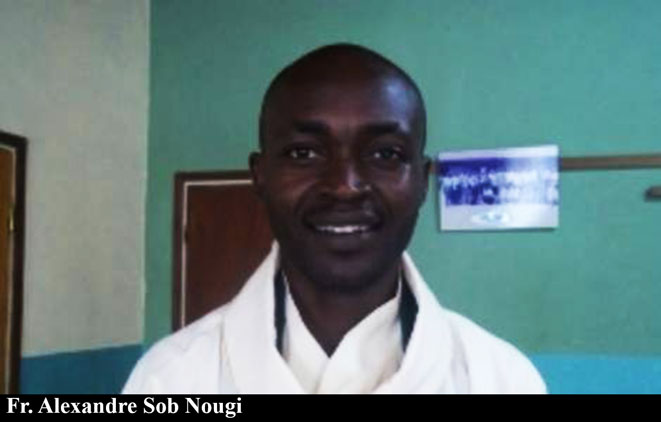CAMEROON
Priest killed in clashes between government forces and separatists
A Catholic priest has been killed on 20 July during an exchange of fire between government forces and separatist militants by unidentified individuals. Fr. Alexandre Sob Nougi, 42, pastor of the parish of the Sacred Heart in Bomaka and diocesan secretary for Catholic education, was killed on the road between Buea and Muyuka 25 km northeast of Buea, the capital of the English-speaking region in the southwest of the country.
The circumstances of his death are uncertain – some reports say he was hit by a stray bullet during a clash between military and separatists, while others state he was deliberately killed. It remains unclear if the priest was targeted and who was responsible for his shooting. The government forces and separatist militants have both have denied responsibility.
Neither the Cameroonian authorities nor the Catholic hierarchy has commented on the circumstances of the death of the priest. A communication officer of the Catholic Church in Yaoundé said “We have received photographs of the body of the deceased priest, Alexander Sob Nougi,’‘ stating that the perpetrators of the murder remain unknown and that the body was mutilated.
Security in Cameroon’s two English-speaking regions, the north-west and south-west, has deteriorated alarmingly in the past few months. There are almost daily clashes between the security forces and separatists demanding the creation of an independent English-speaking state.
Since November 2016 the region has seen the closure of all English-speaking schools, strikes, unrest, and sporadic violence. Tensions have escalated considerably since October 2017, when secessionists unilaterally proclaimed the independence of. the two English-speaking provinces from Cameroon and the birth of the Republic of Ambazonia. Armed separatists in English-speaking regions of Cameroon have killed over 80 soldiers and police since October. According to the United Nations, 160,000 English-speaking Cameroonians have left their homes to seek refuge in other areas of Cameroon or abroad, especially in Nigeria. The increasingly violent armed conflict in the English-speaking zone, as well as that against the jihadist group Boko Haram in the north of the country, could disrupt the elections scheduled for 7 October.
Following Cameroon ‘s independence in1960, minority English-speaking Cameroonians have accused the French-speaking authorities of marginalizing them. They claim that the authorities in Yaoundé impose the French language and traditions in courts, public offices and schools and have demanded greater autonomy.
Only the Catholic Church, which represents almost a third of the Cameroonian population, is capable of promoting dialogue between the insurgents and the government, according to the International Crisis Group (ICG). In May the Bishops’ Conference of Cameroon stated that a situation has been created “marked by blind, inhuman, monstrous violence and by a radicalization of positions that alarm us a lot.” The Bishops urged: “Let us stop all forms of violence and let us stop killing each other … Let us save our country from an unfounded and useless civil war.”





